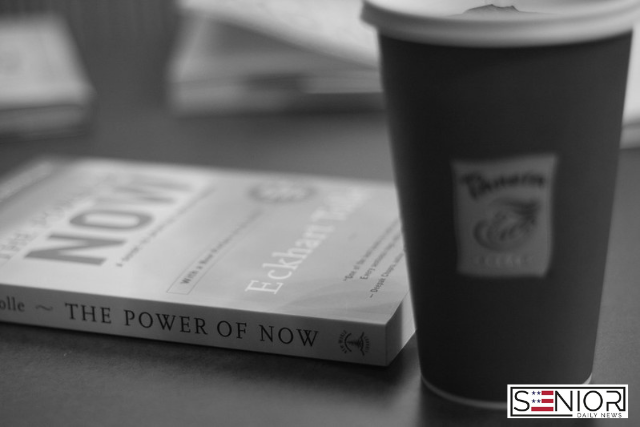7 Best Self-Help Books for Personal Growth and Success

No matter what stage of life we are in, we all look for ways to improve ourselves, feel more fulfilled, and live with greater purpose. For many seniors in the United States, retirement brings both opportunities and challenges: more time to explore passions, but also moments of uncertainty about identity, health, or direction. Reading self-help books can be an inspiring and practical way to embrace personal growth and find fresh motivation. These books don’t just teach lessons—they offer tools for real transformation, whether that’s building confidence, managing stress, or discovering new meaning in life. Here, we’ll explore seven of the best self-help books for personal growth and success, each offering insights that can make life richer and more rewarding.
Why Self-Help Books Matter for Personal Growth
Self-help books often get dismissed as “just advice,” but they are much more than that. They can serve as mentors in print, guiding readers through challenges, providing encouragement, and sparking new ways of thinking. For seniors, these books can be especially powerful. Retirement and aging sometimes bring feelings of isolation or loss of purpose. Self-help literature offers not only strategies for navigating change but also hope and encouragement to keep moving forward. Whether the goal is mental clarity, emotional resilience, or achieving long-term dreams, books on personal growth can light the way.
1. The Power of Now by Eckhart Tolle
Eckhart Tolle’s timeless bestseller teaches the importance of living in the present moment. Many people spend too much time dwelling on the past or worrying about the future, which leads to stress and missed opportunities. Tolle explains how to break free from the constant chatter of the mind and experience true peace in the “now.” For seniors, this message is particularly meaningful because it encourages embracing each moment, regardless of age or circumstance. The practical exercises help readers detach from negative thoughts and find joy in simple, everyday experiences.
2. Atomic Habits by James Clear
Habits form the foundation of our daily lives, and this book provides a step-by-step guide to changing them for the better. James Clear shows how small, consistent actions can compound into remarkable results over time. For example, walking a few extra steps each day, journaling for five minutes, or adjusting a morning routine can create long-lasting positive changes. Seniors interested in personal growth will find this book motivating because it proves that it’s never too late to form new habits and improve quality of life. The methods are simple, practical, and effective, making it accessible for any age group.
3. The 7 Habits of Highly Effective People by Stephen R. Covey
First published in 1989, Covey’s classic is still one of the most influential self-help books in the world. It focuses on building character, integrity, and meaningful relationships. Covey’s seven habits encourage readers to be proactive, prioritize what matters most, and strive for win-win situations in both personal and professional interactions. For seniors, this book is especially helpful in cultivating strong family relationships, contributing to the community, and setting personal goals in retirement. The principles are timeless and can be applied to any stage of life.
4. Man’s Search for Meaning by Viktor E. Frankl
This deeply moving book combines psychology, philosophy, and personal testimony. Written by Viktor Frankl, a Holocaust survivor and psychiatrist, it explores how finding meaning in life is the ultimate human drive. Frankl argues that even in the most difficult circumstances, we can discover purpose, whether through love, work, or resilience. For seniors, this book provides profound insight into facing challenges with dignity and purpose. It reassures readers that no matter their age, there is always a reason to live with passion and meaning.
5. You Are a Badass by Jen Sincero
With humor and bold encouragement, Jen Sincero’s book empowers readers to break free from self-doubt and take charge of their lives. It’s a lively, no-nonsense guide to building confidence, setting boundaries, and chasing dreams. Seniors often face stereotypes about slowing down or “taking it easy,” but this book inspires the opposite—it motivates people to embrace ambition and joy at any age. Its conversational style makes it both entertaining and empowering, proving that personal growth can be fun and exciting.
6. Daring Greatly by Brené Brown
Brené Brown’s groundbreaking research on vulnerability has touched millions of lives. In Daring Greatly, she explains how vulnerability is not weakness but rather the birthplace of courage, creativity, and connection. Many seniors may struggle with feelings of vulnerability, whether due to health concerns, changing relationships, or adapting to new lifestyles. This book reframes vulnerability as a strength, encouraging readers to embrace authenticity and open themselves to deeper, more meaningful connections with others.
7. The Four Agreements by Don Miguel Ruiz
Based on ancient Toltec wisdom, The Four Agreements outlines four simple yet transformative principles for living a happy life: be impeccable with your word, don’t take things personally, don’t make assumptions, and always do your best. These teachings offer practical guidance for reducing stress, improving relationships, and finding inner peace. For seniors seeking personal growth, the simplicity of these agreements makes them easy to practice daily, leading to greater calm and clarity.
How to Choose the Right Self-Help Book for You
With thousands of self-help books available, it’s important to choose one that resonates with your current needs. Ask yourself: Do you want to improve your habits, strengthen relationships, or find deeper meaning? Are you drawn to practical advice or inspirational stories? Sometimes, reading just one book at the right time can spark a life-changing transformation. For seniors, selecting books that balance wisdom with practicality can be particularly helpful.
The Impact of Reading on Personal Growth
Beyond the lessons themselves, the act of reading contributes to personal growth. Studies show that reading improves memory, reduces stress, and strengthens cognitive abilities—all of which are especially valuable as we age. It also stimulates curiosity, creativity, and empathy by allowing us to see life from different perspectives. Combining reading with reflection, journaling, or discussion groups can deepen the impact of self-help literature and encourage long-lasting change.
FAQs About Self-Help Books and Personal Growth
1. Can seniors benefit from self-help books?
Yes. Self-help books offer practical tools, encouragement, and fresh perspectives that are valuable at any age. Seniors can use them to improve habits, build confidence, and find renewed meaning in life.
2. Are self-help books only about success in careers?
Not at all. Many self-help books focus on relationships, emotional resilience, mental health, and personal fulfillment—not just professional success.
3. Which book is best for finding meaning later in life?
Man’s Search for Meaning by Viktor Frankl is particularly powerful for seniors seeking purpose during retirement or after life changes.
4. How can I get the most out of a self-help book?
Take notes, reflect on key lessons, and try applying one or two ideas at a time. Discussing the book with friends or in a group can also deepen your understanding.
5. Are these books easy to read for older adults?
Most self-help books are written in an accessible, conversational style. Large-print editions and audiobooks are also available for seniors with vision challenges.
6. Can reading self-help books improve mental health?
Yes. Many books provide tools for reducing stress, managing emotions, and increasing resilience. While they don’t replace professional therapy, they can complement it effectively.
Image Source: Flicker






